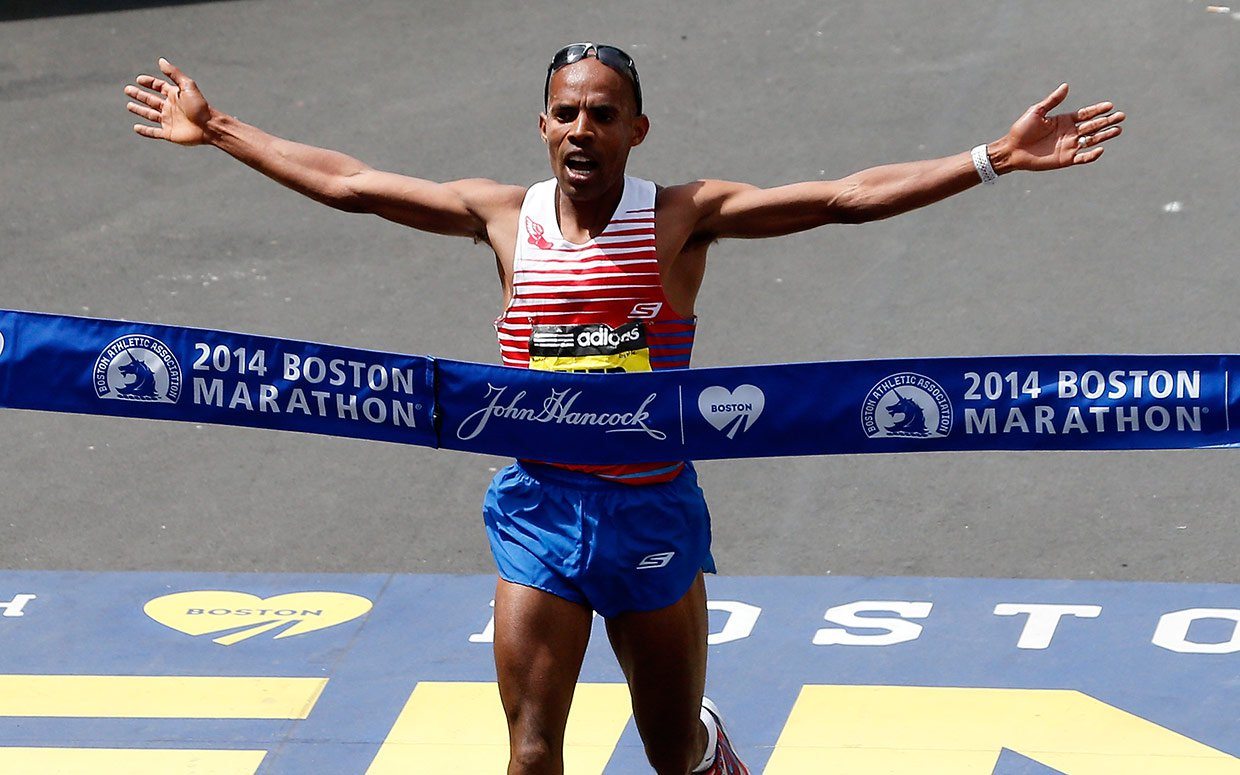Can we train someone to break the two-hour marathon barrier? Check out what they are doing in Ethiopia to make it possible
Ethiopia is home to some of the fastest marathoners, and the times have improved markedly in the past 100 years, but can a runner break the two-hour marathon barrier. The fastest marathon ever recorded was Kenyan Geoffrey Mutai ‘s mark of 2:03:02 at the 2011 Boston Marathon. The IAAF has noted: “Due to the elevation drop and point-to-point measurements of the Boston course, performances [on that course] are not eligible for World record consideration.”
Finding someone who can possess the drive, skills, and potential to dedicate themselves for this task is very difficult, but in a country where the average family earns just over $500 per year and most children walk or run to school and may do so barefoot has created a breeding ground of sorts for motivated runners who want to be chosen to train and hopefully bask in the wealth that can be earned if such a task is accomplished.
Even just winning a marathon can change their lives.
Check out this fascinating article that was recently in the NY Times.
The Two-Hour Marathon. Can It Be Done?
Trying to understand what it takes to break the barrier, and to identify the athlete who might be able to do it.
By JERÃ LONGMAN MAY 11, 2016
BEKOJI, Ethiopia; Dressed in a soccer jersey and gray pants, Chala Tulu, 14, began walking in his bare feet and then gradually increased his pace around a grass track at Bekoji Elementary School.
Tulu wore a mask and a harness fitted with a small battery pack and a device known as a gas analyzer. He had volunteered for a VO2 max test, which measures the maximum amount of oxygen a runner can use.
A plow had furrowed the track with lane markers. Eucalyptus trees provided a windbreak. Hills of barley and wheat rose in the distance, brown and tan in the weeks after the harvest. As Tulu picked up his speed with an elegant stride, children clapped and chanted his name.
Pacing him on a bicycle was the physiologist Yannis Pitsiladis. He had begun testing young athletes, trying to identify promising talent for an audacious plan: to use science to facilitate a sub-two-hour marathon by 2019, a decade or two sooner than many experts think possible.
Read more
